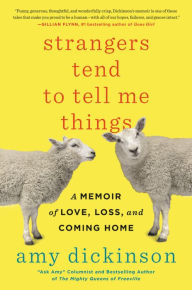There are many reasons to write a memoir: to work through a personal trauma, to leave a record for your family, to try to understand how you’ve gotten to this place in your life, to name just a few. Not all such memoirs are appropriate for publication, or in fact written with publication in mind.
While it’s true that for a few years there were quite a few illness and grief memoirs published that were thought to be useful to others suffering similar calamities, that time has passed. With such a glut of what my friend calls “woe-is-me” memoirs, publishers and the reading public look for something more than a sad story.
To be commercially published today, memoirs must be well-written—always a priority!—and addressing some larger social issue, something that the general public will find interesting. Take, for example, Hillbilly Elegy which I reviewed a couple of weeks ago. True, it had a bit too much woe-is-me for my taste, but it hit the mark commercially by telling the inside story of what it’s like to grow up in the white working class in an environment where there’s not much work anymore.
You’re probably already raising your hand and saying, “But what about . . .?” Yes, the exception to this rule is a memoir by a celebrity. Fame is a peculiar sort of intimacy, where we feel we know someone from their shows or books, but at the same time know that we don’t know them at all. I recently devoured The Memory of All That, a memoir by Betsy Blair’s memoir of her marriage to Gene Kelly. As a huge fan, I was relieved to find him portrayed as the truly decent man I’d thought him.
Dickinson’s memoir wins on all three counts. Roughly chronological, the story flows well, written in forthright prose sweetened by a generous dose of humor. While pulling no punches in telling her own story, Dickinson invites us to look at families and small-town life, how we are different and how we are the same. And as the author of the syndicated “Ask Amy” column and a regular on Wait, Wait Don’t Tell Me . . . !, she has a legion of fans already.
And did I say it was funny? I actually laughed aloud, startling the cat into bolting from the room. Most of the humor is directed at herself and her own foibles, but she doesn’t hesitate to bring out the quirks in those around her. She says of her mother:
One of Jane’s primary modes of home decorating was to saw the legs off of things. You’d go upstairs to bed at night, and in the morning when you came back downstairs, the kitchen table had become a coffee table. Growing up, we got used to it.
People in my memoir classes often ask how to handle criticising family or friends. They want to tell their story honestly but avoid hurting or offending other people. I believe the key is to respect their privacy as much as possible and, when you have to show them in a bad light, do it with love. Try to understand why they behaved as they did. One factor in The Glass Castle’s success was the way Jeannette Walls told us all the horrible things her parents did, yet she always spoke of them with love and explained their reasoning.
In this book, Dickinson is generous and truly writes from love, even about her ne’er-do-well father who not only abandoned the family but sold off all their assets and absconded with the money.
When you need a laugh or reassurance that life can be crazy and good at the same time, pick up this book. It is an excellent read: honest, plain-spoken, and full of the humor found in daily life.
Can you recommend a warm and humorous book? Or share a joke?
